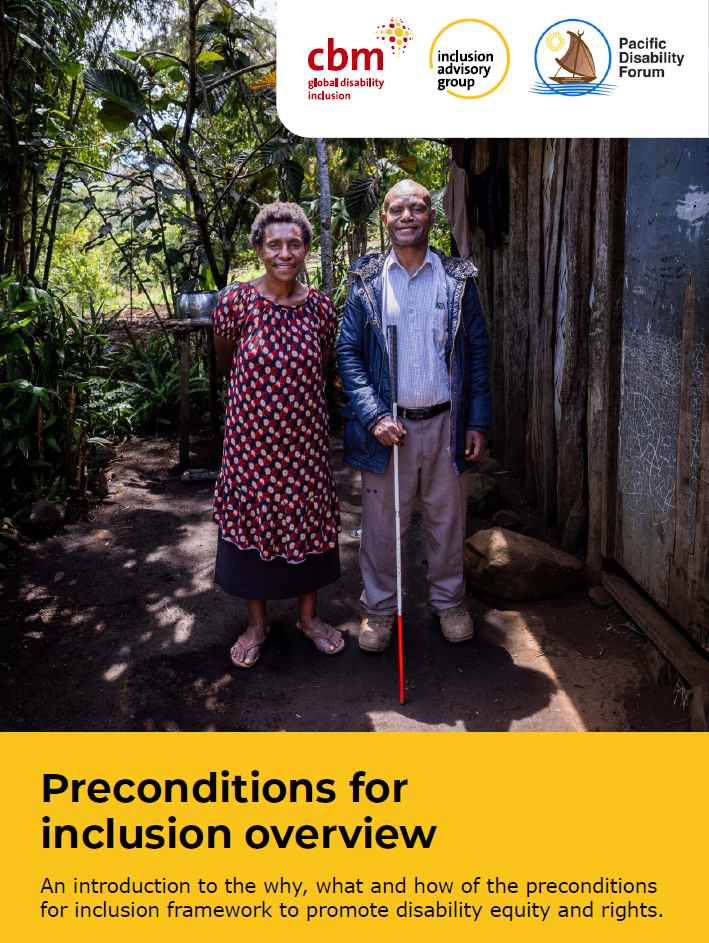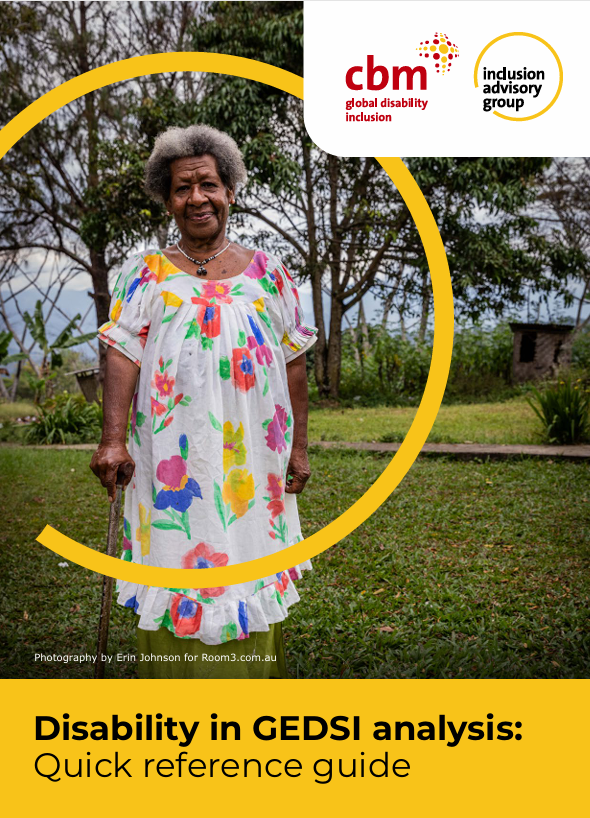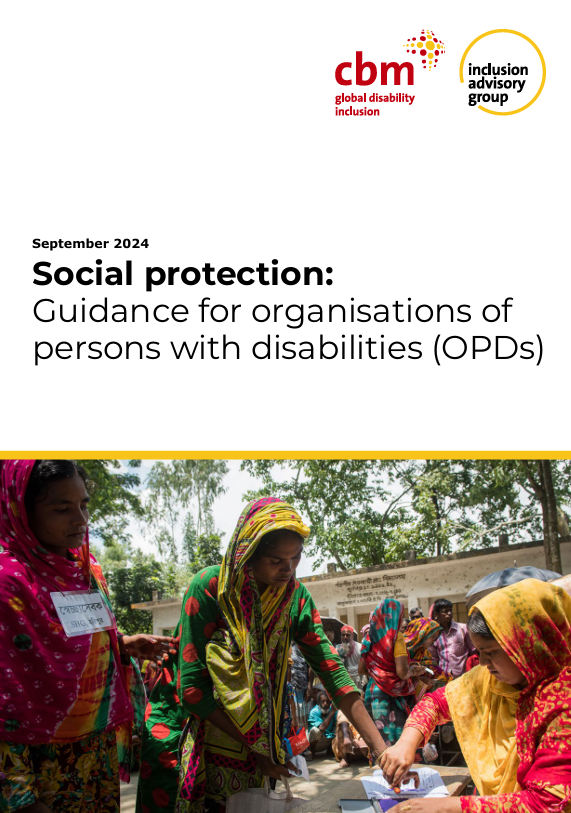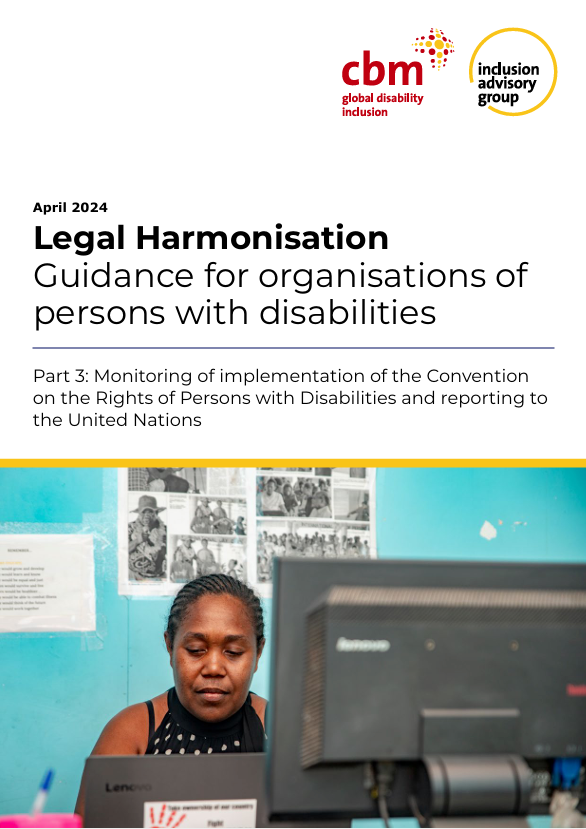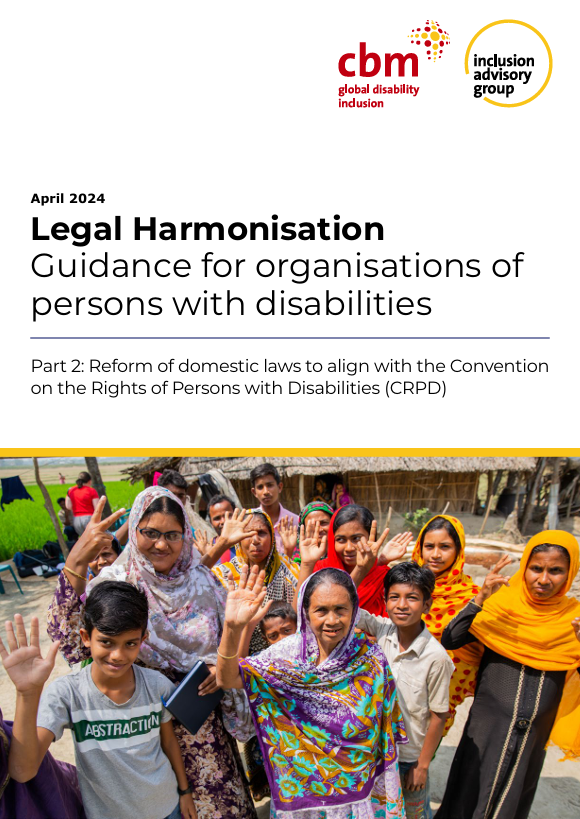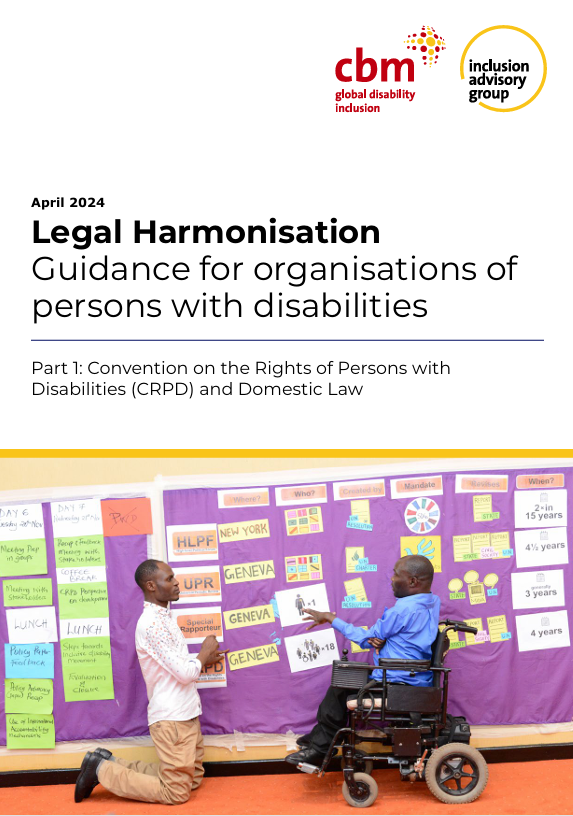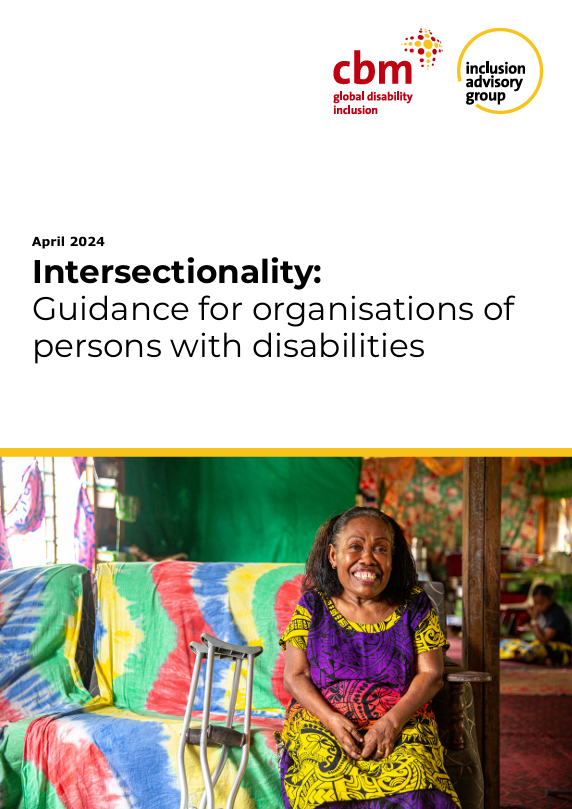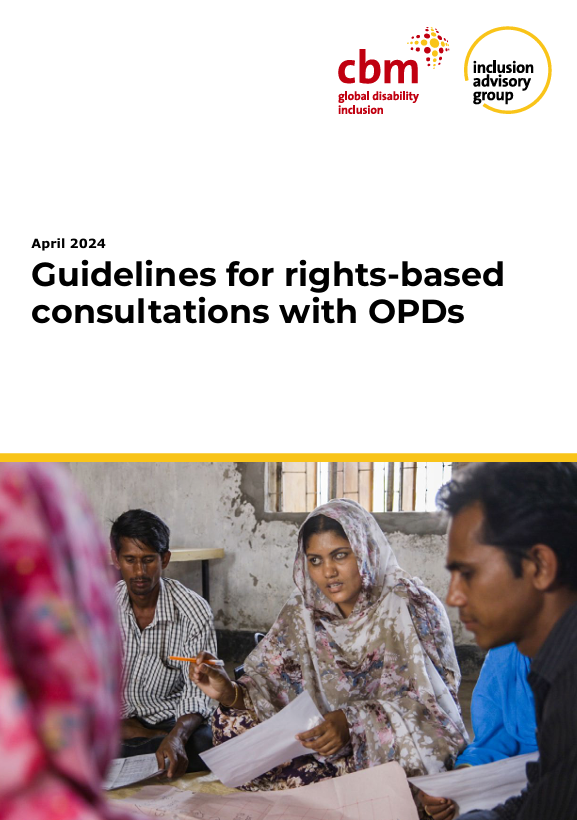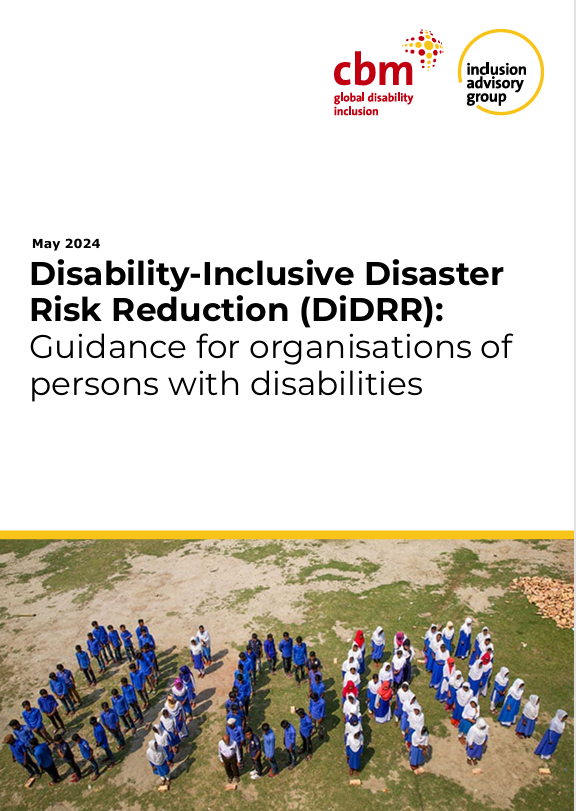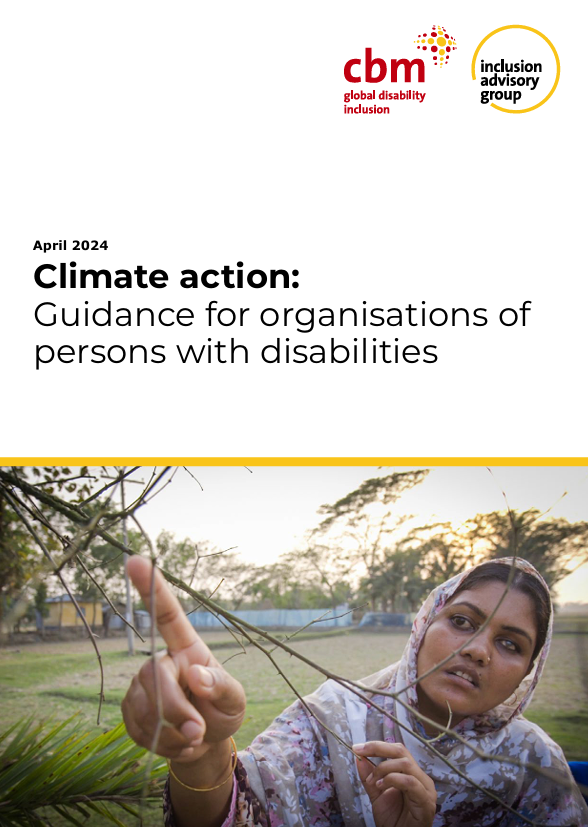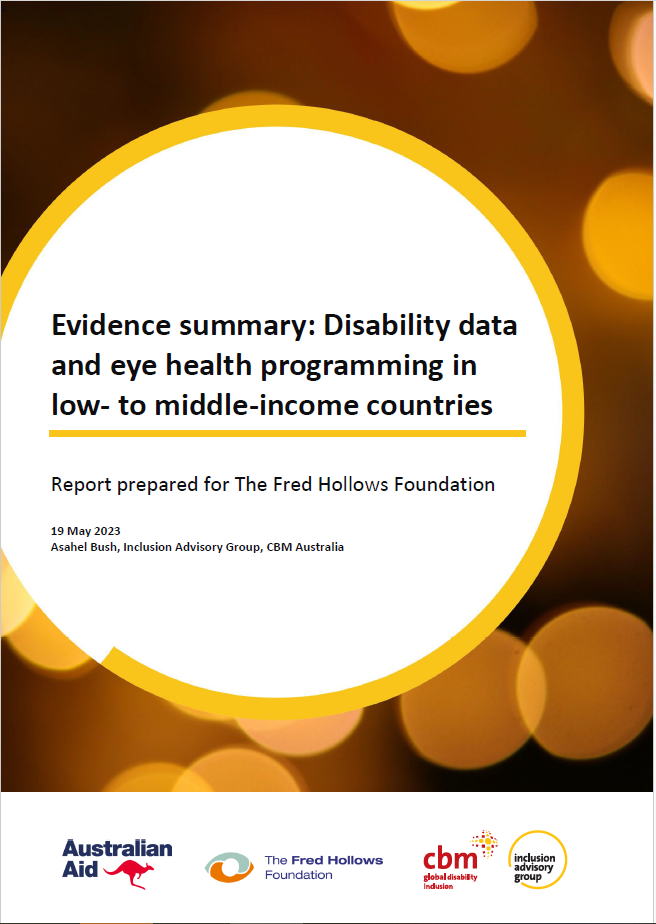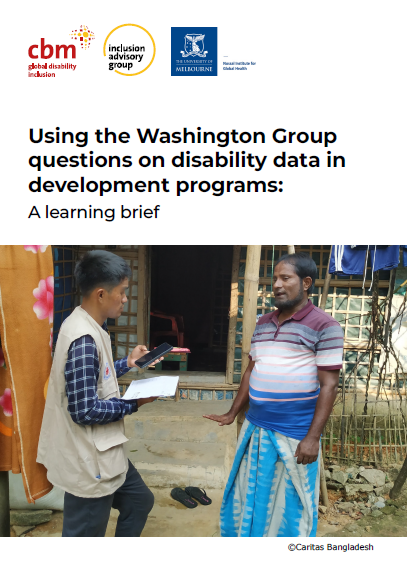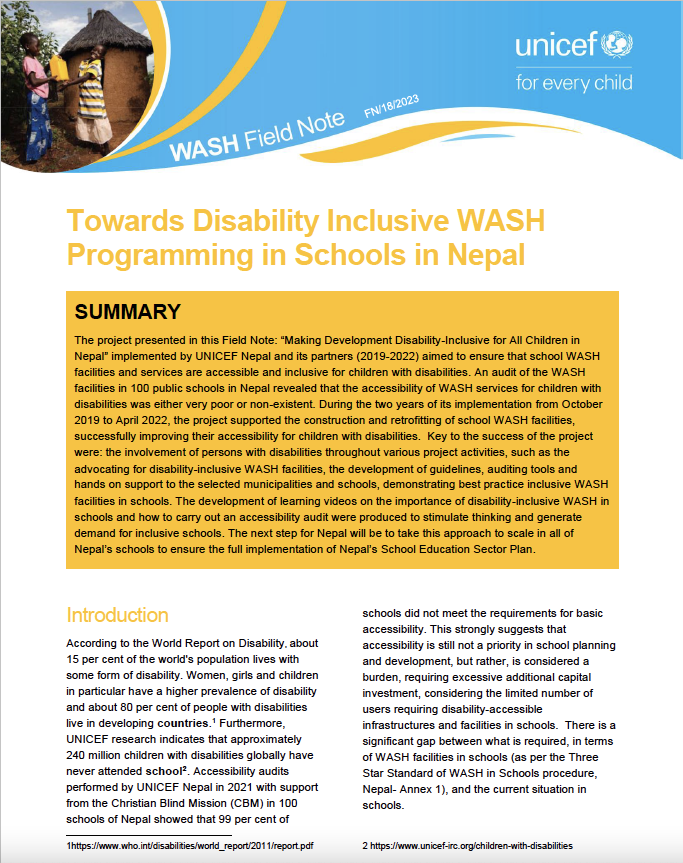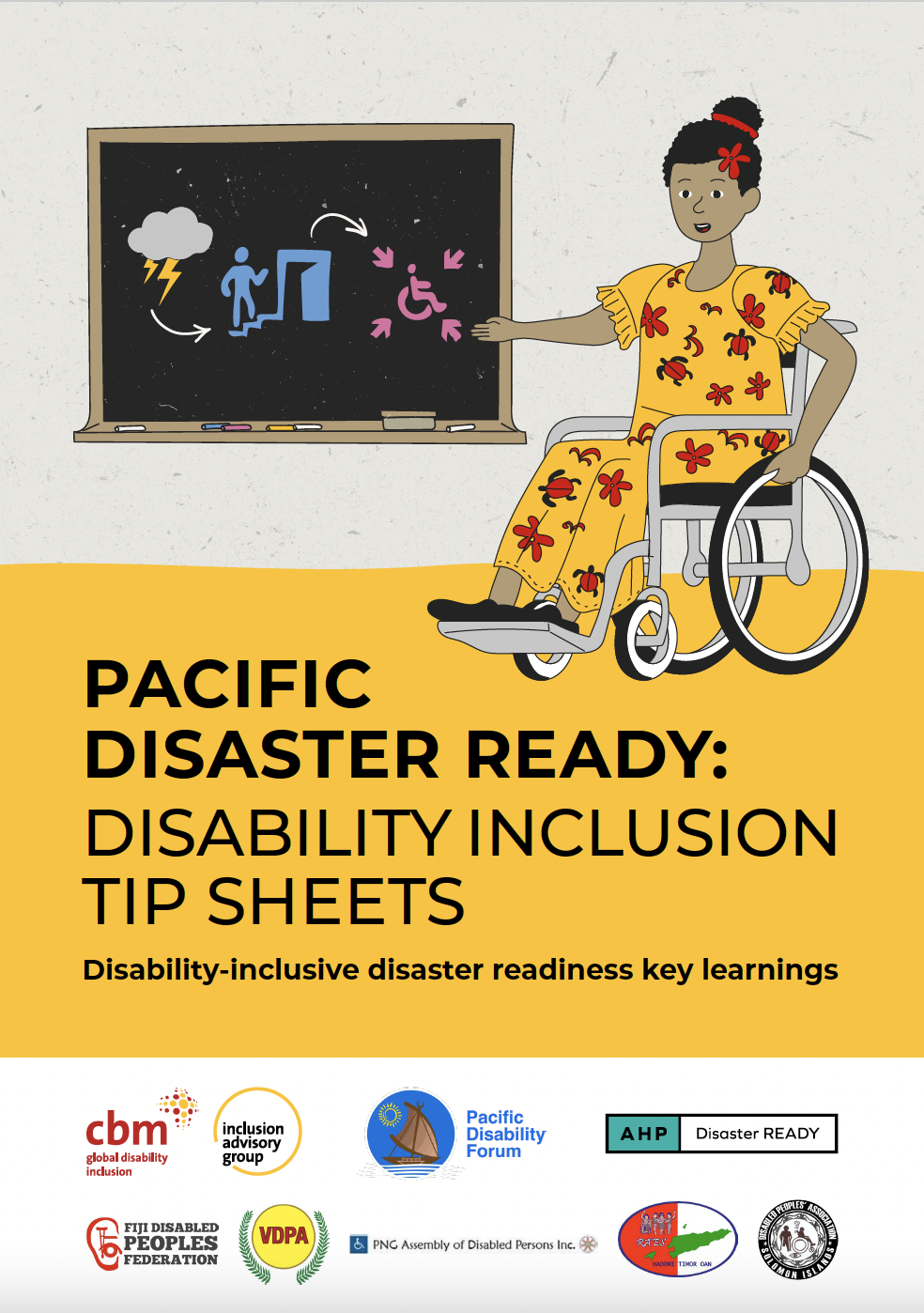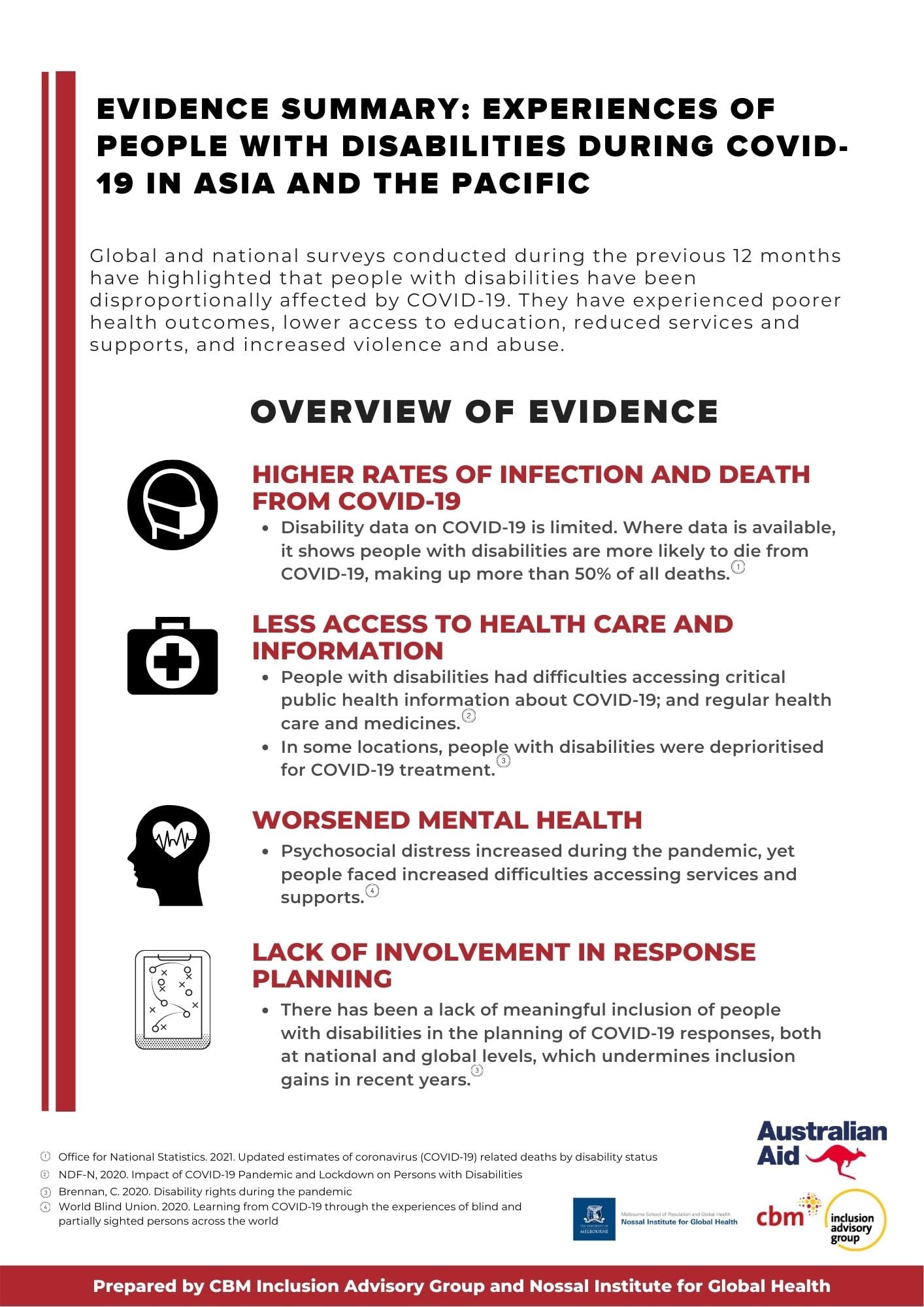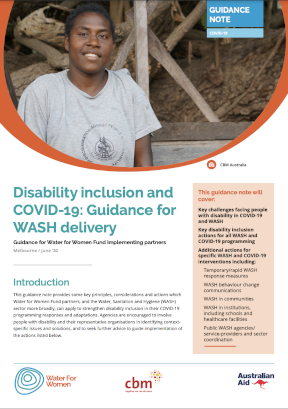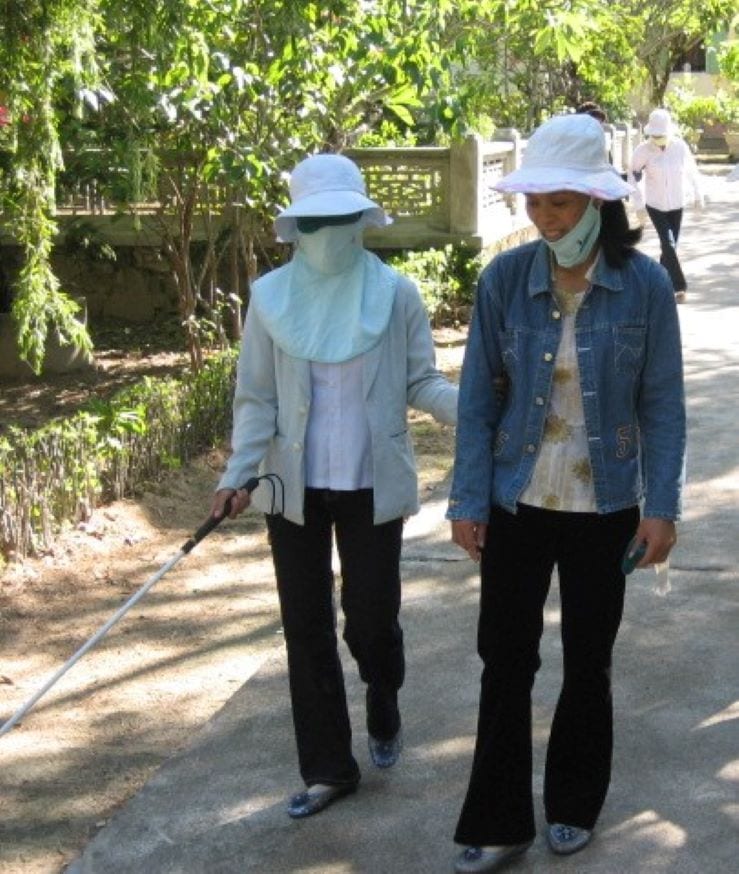Guidance and Tools
A range of guidance and tools across different sectors and written for different audiences, including disability movement partners and mainstream development and humanitarian partners. Many support disability inclusive programming efforts.
Preconditions for inclusion overview
The preconditions for inclusion are essential elements that must be established to create an enabling environment for people with disabilities.
Disability in GEDSI analysis: Quick reference guide
This quick reference guide is for Gender Equality, Disability and Social Inclusion (GEDSI) advisors and development practitioners who are undertaking GEDSI analysis and looking to ensure that disability equity and rights are adequately addressed.
Social protection: Guidance for organisations of persons with disabilities (OPDs)
This guidance note describes the key issues on disability inclusive social protection and suggests how OPDs can take action to ensure they are understood and actioned by development and humanitarian actors.
Legal Harmonisation Guidance for organisations of persons with disabilities Part 3
This set of three guidance notes has been designed to clarify the relationship between the Convention on the Rights of Persons with Disabilities (CRPD), and domestic laws. Part 1 is about the CRPD and domestic law; Part 2 relates to law reforms to align with CRPD; and Part 3 relates to monitoring and reporting under CRPD.
Legal Harmonisation Guidance for organisations of persons with disabilities Part 2
This set of three guidance notes has been designed to clarify the relationship between the Convention on the Rights of Persons with Disabilities (CRPD), and domestic laws. Part 1 is about the CRPD and domestic law; Part 2 relates to law reforms to align with CRPD; and Part 3 relates to monitoring and reporting under CRPD.
Legal Harmonisation Guidance for organisations of persons with disabilities Part 1
This set of three guidance notes has been designed to clarify the relationship between the Convention on the Rights of Persons with Disabilities (CRPD), and domestic laws. Part 1 is about the CRPD and domestic law; Part 2 relates to law reforms to align with CRPD; and Part 3 relates to monitoring and reporting under CRPD.
Intersectionality: Guidance for organisations of persons with disabilities
This guidance note details the key considerations related to how disability and other identities can combine to create unique experiences of exclusion. It suggests action points for OPDs to ensure that intersectionality is understood considered by development and humanitarian actors, so that groups of people at higher risk of exclusion are not left behind in policy and programming.
Guidelines for rights-based consultations with OPDs
This guidance note has been produced for OPDs to use with development and humanitarian organisations who may wish to consult with them on disability inclusion. It details key considerations for partners and clients to ensure they achieve effective and meaningful OPD engagement.
Disability-Inclusive Disaster Risk Reduction (DiDRR): Guidance for organisations of persons with disabilities
This guidance note describes the key issues on disability inclusive DRR and suggests how OPDs can take action to ensure they are understood and addressed by development and humanitarian actors.
Climate action: Guidance for organisations of persons with disabilities
This guidance note describes the key issues on disability inclusive CCA and suggests how OPDs can take action to ensure they are understood and addressed by development and humanitarian actors.
Advisory services resource pack for OPDs: Overview of the package
This set of eight resources has been developed to support OPDs engaging in advisory work. The suggestions and tools can be applied and adapted to suit different countries and contexts, and can be complemented by coaching, mentoring, peer exchange and opportunities to learn from experience.
Preconditions for inclusion: Guidance for organisations of persons with disabilities
This guidance note describes the key components of four key preconditions to inclusion, and how OPDs can take action to ensure they are understood and addressed by development and humanitarian actors.
Disability Data Evidence Summary 2024 PDF
In 2023, The Fred Hollows Foundation (The Foundation) engaged CBM Global's Inclusion Advisory Group (IAG) to gather evidence and provide practical recommendations on collecting and using disability data within eye health programs. Although there were well-established tools and guidance on disability data within population surveys and development programs, clear guidance on their application and rollout in the eye health sector was unavailable.
Using the Washington Group questions on disability data in development programs: A learning brief
The learning brief offers practical guidance with suggested approaches to overcoming common issues and concerns, with a focus on the Washington Group questions.
Promoting Disability Friendly WASH in Schools in Nepal
CBM Global’s Inclusion Advisory Group worked with UNICEF Nepal on a project to ensure that school WASH facilities and services were accessible and inclusive for children with disabilities.
Pacific Disaster Ready: Disability inclusion tip sheets
The Pacific Disaster Ready Tip Sheets are a suite of documents and includes key messages and talking points for different sectoral and thematic issues drawing on the learnings from the past four and a half years of the Pacific Disaster Ready project.
Evidence Summary: Experiences of People with Disabilities During COVID-19 in Asia and the Pacific
Global and national surveys have highlighted that people with disabilities have been disproportionally affected by COVID-19.
Disability inclusion and COVID-19: Guidance for WASH delivery
This guidance note from our Inclusion Advisory Group provides some key principles, considerations and actions.
Organisational Engagement on Disability Inclusion tool
This tool was developed with ANCP Partner Organisations to support development organisations to capture a ‘snap shot’ of how they are engaging with disability inclusion, to assess what areas need further work, and to assist action planning.

